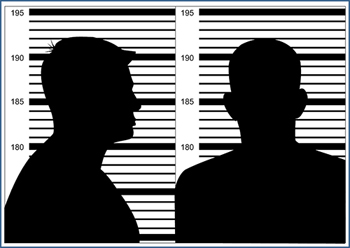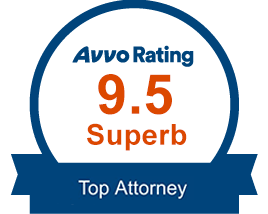 Virginia Felony Criminal Defense
Virginia Felony Criminal Defense
The shock, anxiety and confusion can be overwhelming when you are arrested for committing a felony. It is important to remember that a criminal charge is not a conviction. Criminal allegations must be proven in court. A felony defense attorney from The Law Offices of John W. Lee, P.C. gives you the best chance to avoid prison, fines and a permanent criminal record associated with a conviction.
What Is a Felony?
Crimes are either misdemeanors or felonies. Misdemeanors in Virginia are punishable by up to one year in jail and may include monetary fines. Felonies are more serious criminal offenses, so the penalties associated with a conviction are more severe. As a general rule, a felony is punishable by a year or more in state prison. Fines associated with felony convictions are usually higher than for a misdemeanor.
Crimes such as theft, can be either misdemeanors or felonies depending upon the facts. For instance, removing property from a desk while the owner is at lunch could lead to misdemeanor petit larceny charges if the value of the stolen property is less than $200. However if the same property was taken out of the owner’s hand, the criminal charge could be felony robbery.
A criminal defense attorney for a robbery charge in Virginia might attack the evidence to get the charges reduced from a felony. Criminal defense lawyers make it a point to review felony charges to make certain their clients have not been charged in a higher classification than is justified by the facts of the case.
- Murder
- Robbery
- Distrubition of Illegal Narcotics
- Kidnapping
- Obstruction of Justice
- Arson
- Aggravated Assault
- Criminal Battery
- Perjury
- Vandalism of Federal Property
- Violating Parole
- Mail Tampering
Felony Crimes in Virginia and Possible Penalties
Virginia has six classes of felonies based upon the seriousness of the prohibited conduct. A judge may impose sentences using guidelines for each class as defined by Virginia law. Examples of felony crimes and punishment for each of these classes is as follows:
- Class 1 felony: Premeditated murder is the only Class 1 felony. A conviction is punishable by the death penalty or life imprisonment with fines up to $100,000.
- Class 2 felony: Examples of Class 2 felonies include murder, burglary while in possession of a weapon, robbery, aggravated assault and kidnapping. The minimum prison term is 20 years and the maximum is life. Fines can be as high as $100,000.
- Class 3 felony: Stalking, arson, kidnapping, burglary without a weapon and stabbing someone with intent to maim are Class 3 felonies. Punishment can be imprisonment for a minimum of five years up to a maximum of 20 and fines up to $100,000.
- Class 4 felony: Embezzlement and some offenses related to prostitution are examples of Class 4 felonies. Punishment can include imprisonment for a minimum of 2 years up to a maximum of 10 years and fines up to $100,000.
- Class 5 felony: Battery, involuntary manslaughter, and possession of cocaine and other controlled substances are Class 5 felonies. Penalties can include incarceration in prison for one to 10 years and a fine up to $2,500.
- Class 6 felony: Reckless endangerment and a third conviction for petit larceny are Class 6 felonies. Punishment is between one and five years in prison with maximum fines up to $2,500.
Felony Drug Lawyers
Drug possession and distribution arrests by law enforcement agencies in Hampton Roads, Virginia can result in felony charges. Our criminal defense lawyers plan defense strategies based on the facts of each case. When evidence is weak, reduction of charges or dismissal of charges can occur.
Virginia lists drugs in schedules according to the potential for abuse and its medical value. For example, Schedule I substances, such as heroin, ecstasy and LSD, have the highest potential for abuse with no recognized medical use. Possession of Schedule I and Schedule II controlled substances usually result in Class 5 felony charges, but the quantity of the substance can affect the charges.
If you have 100 grams of heroin in your possession, police could charge you with possession with intent to sell or distribute. Instead of a Class 5 felony punishable by up to 10 years in prison and a $2,500 fine, you could be charged with an unclassified felony under Va. Code §18.2-248(c)(1) and sentenced to pay a $1 million fine and imprisoned for five years to life.
Defense of Drug Charges in Virginia
Our felony drug lawyers believe an aggressive defense is your best weapon against serious drug charges. An effective defense strategy could lead to a dismissal of the charges, or it could force prosecutors to offer a reduction in the charges and the penalties. Defenses we pursue on your behalf include:
- Motions to suppress evidence resulting from unlawful searches and seizures
- Challenges to laboratory reports as to type and weight of the controlled substances
- Suppression of statements made to police in violation of Fifth Amendment rights
Felony Defense Attorney
If you are arrested for murder, robbery or another felony offense, your attorney will be at your side any time you appear in court. If you are charged with committing a crime, prosecutors file paperwork with the court charging you with a particular offense.
Preliminary Hearing
You cannot be forced to answer to a felony charge unless there has been an indictment handed down by a Grand Jury. A preliminary hearing is held in General District Court to decide if your case should be sent to a Grand Jury. Sufficient evidence must exist to establish probable cause that you committed the crime. Your attorney may cross-examine witnesses and present evidence in your defense. If the judge decides their is enough evidence, he will certify the case to the Circuit Court where a Grand Jury will review the evidence.
Grand Jury
The grand jury hears evidence presented by prosecutors. An indictment will only be issued if the grand jurors believe a crime has been committed. An indictment is the formal charge against you and moves the case to Circuit Court where your criminal defense attorney will appear with you to enter a plea to the indictment. The attorney representing you can use the time between a preliminary hearing and grand jury action to discuss the charges with prosecutors. Depending on the facts and circumstances, these early discussions could result in a favorable disposition of the charges.
Expungement
It is nearly impossible to have a felony expunged from your record after a conviction. In Virginia, an expungement requires that you have been found ‘not guilty’ or that the charges against you were dismissed before you plead guilty. In some cases, ten years after you have completed your sentence, you may be able to petition the Governor for a Simple Pardon; which, while not expunging your record, it is an act of ‘official forgiveness.’
Getting Help When You Need It
Felony charges can affect your life long after your sentence is completed. A felony conviction on your record could prevent you from getting a job, possessing a firearm and obtaining certain professional licenses. The Virginia felony defense attorneys at The Law Offices of John W. Lee, P.C., can be the difference between a favorable outcome and a conviction. Schedule a free and confidential initial consultation by calling (757) 896-0868.

 Virginia Felony Criminal Defense
Virginia Felony Criminal Defense